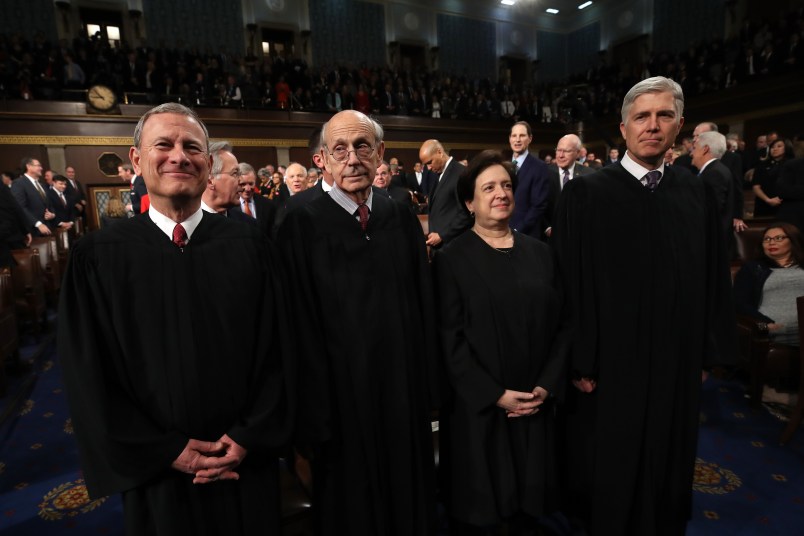The Trump administration on Friday formally asked the Supreme Court for an extraordinary expedited decision on whether a citizenship question can be added to the 2020 census form.
The Justice Department pointed to the June deadline to finalize the 2020 census forms in asking the Supreme Court to take up the case, where a federal judge last week ruled against the administration, before an appeals court has had a chance to fully review it. It suggested the justices could hear the case during its April sitting or during a special sitting the court could call in May.
“It is exceedingly unlikely that the parties could obtain full review in both the court of appeals and this Court by the end of June,” the Justice Department said.
The Justice Department’s move to rush an appeal to the Supreme Court comes after a U.S. District Judge Jesse Furman’s decision last week blocking the addition of a citizenship question. In appealing that decision, the Justice Department also asked the justices to consider a discovery issue in the case that they were previously scheduled to hear in February but then took off their calendar after the federal judge’s decision in the case.
The litigation over the citizenship question is a high-stakes legal battle with major repercussions for voting rights, as well as for how federal funding is allocated throughout the country and for other operations that depend on an accurate census. It is feared that the question will spook the participation of the immigrant population — a concern backed by the Census Bureau’s own analysis of its potential effect — which would lead to an undercount of those communities. Such an undercount would then shift political power and government resources to less diverse, more rural regions.
Furthermore, there are indications that if the question stays on the census, Republicans would use the data it produces to exclude non-citizens from redistricting, further diminishing the political power of immigrant-heavy areas of the country.
Furman, a judge in Manhattan, ruled last week that the move by Commerce Secretary Wilbur Ross to add the question was a violation of the Administrative Procedure Act and the Census Act. He found that the administration’s ostensible reason for the adding the question — that it would help the Justice Department enforce the Voting Rights Act — was pretextual
The case — a consolidation of challenges brought by the ACLU and a multistate coalition — was among the dozen or so lawsuits that were filed against the administration over the question. Federal judges in Maryland and California are presiding over those other cases.
Before Furman’s ruling, the Supreme Court had agreed to review his order earlier in the proceedings that Ross and a top DOJ official be deposed, and that additional discovery be turned over by the administration. The Supreme Court allowed the additional discovery and the deposition of DOJ official John Gore to go forward, but blocked Ross’ deposition. Over the course of those disputes, as well as a denied DOJ request that the trial be delayed, the three most conservative justices on the court hinted that they’d be inclined to let the question be added to the survey.
Furman said his decision relied on the evidence in the case that was not in dispute, but the Justice Department nonetheless asked the Supreme Court on Monday to review — as it had originally planned, before canceling the arguments— whether his orders for the depositions and additional discovery were appropriate.







When you’ve violated the Administrative Procedure Act, the obvious remedy is to short-circuit the legal process.
Crikey, how many epic Pel-losses is Donnie going for this week?
Can’t we just let Mueller settle Trump’s citizenship issues first?
Be careful what you wish for.
Just what does the DOJ have to do with the Census, anyway?